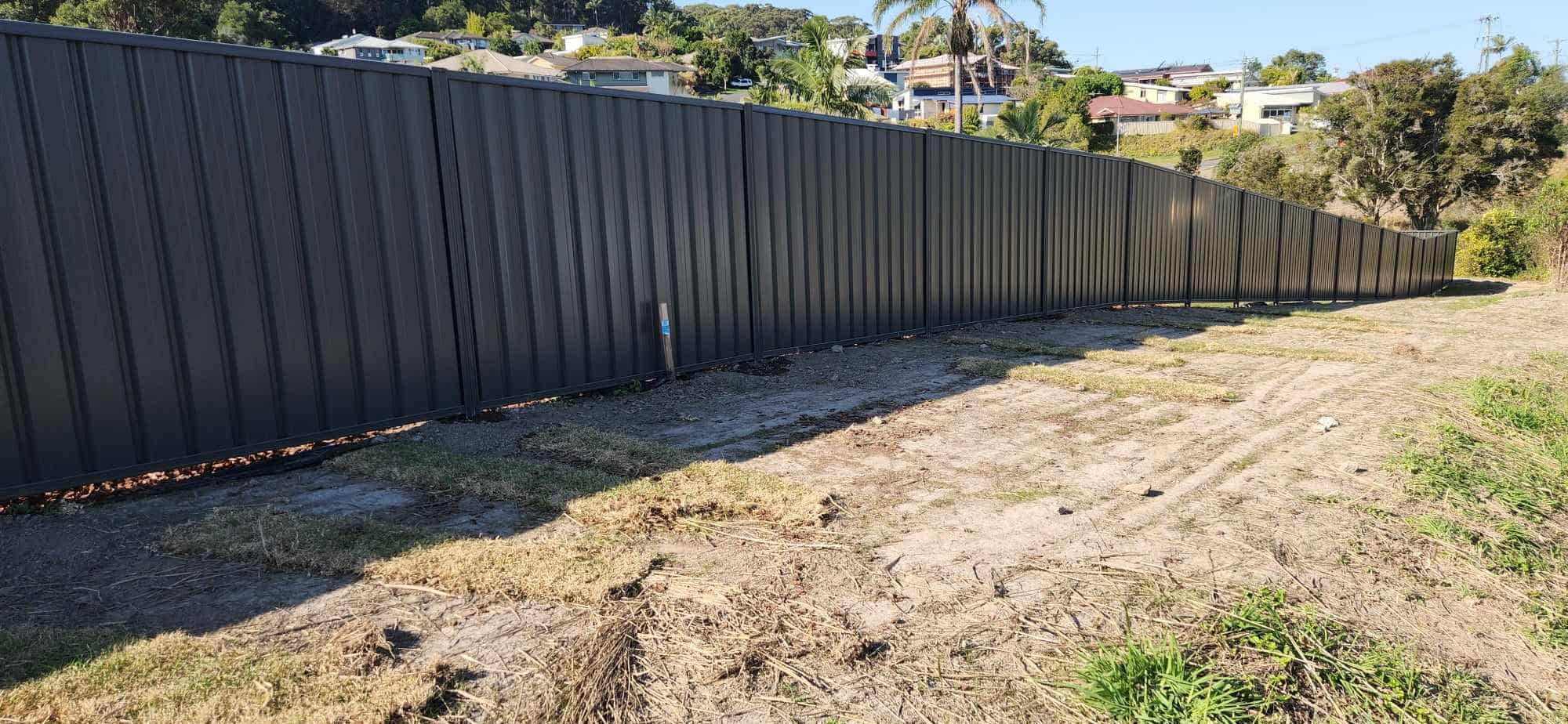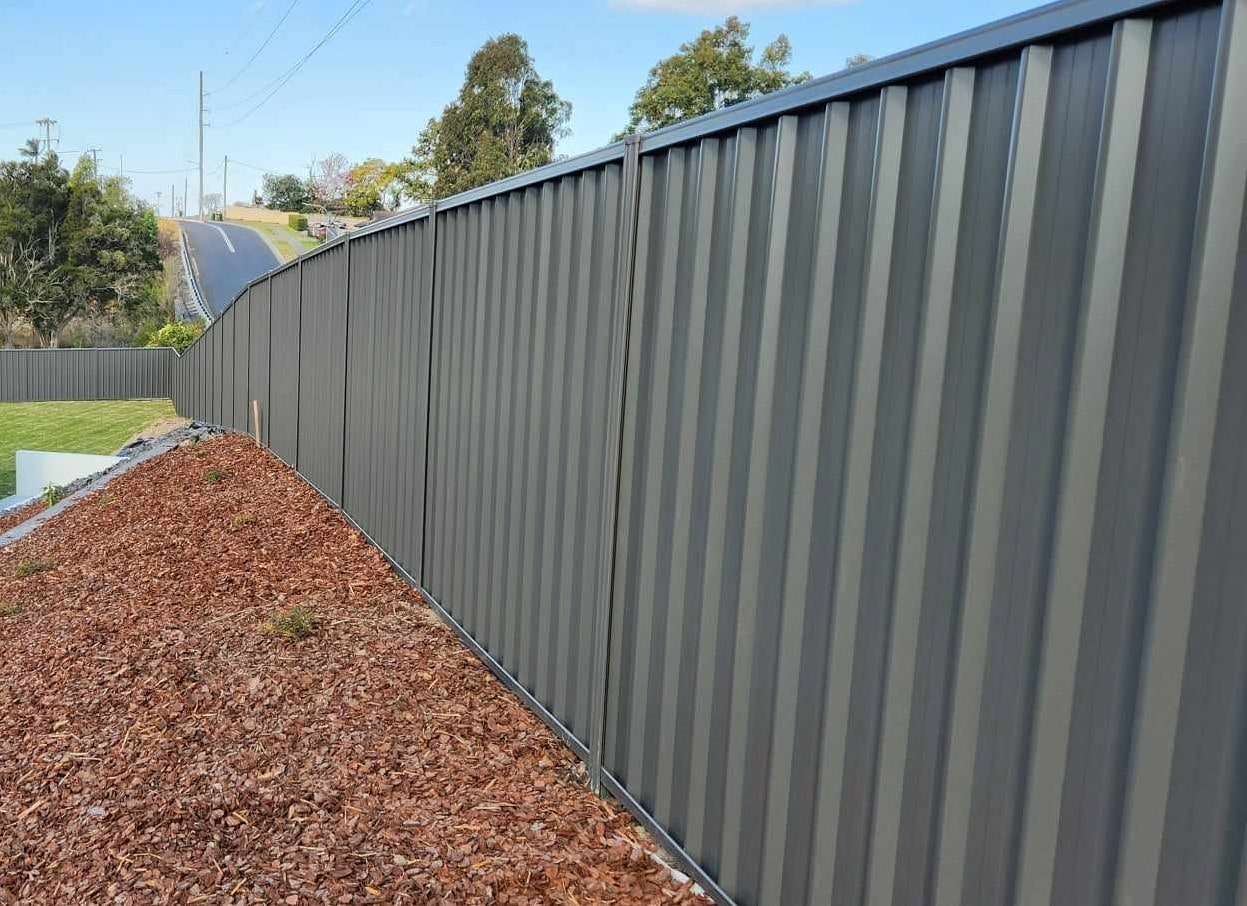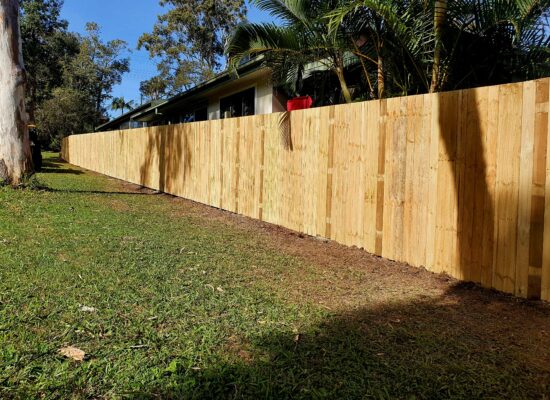Feature Fence Colour of the Month
When you have been a fence installer for as long as we have, there are certainly fence colour trends and fads that come around. These trends will often be influenced by reality TV shows and designer opinions, or in some cases they are a timeless classic that will stay in favour for a long time.
Woodland Grey is a popular Colorbond color that has experienced a resurgence in recent months. This classic color offers a natural, earthy look that complements various architectural styles and landscapes. Its versatility makes it an attractive choice for both residential and commercial properties.

Woodland Grey
Woodland Grey – With its dark, grey-green tone are evocative of deep inland bush as well as coastal scrub. It is suitable for a wide range of suburban and rural applications.
COLORBOND® steel Woodland Grey® is a chameleon colour in the palette. Natural building materials such as rock and stone, as well as modern components like dark timber, complement the depth and harmonious tones of colour. It is suitable for a wide range of rural and suburban applications.

No matter if your fence is on Woolgoolga, Coffs Harbour, Sawtell, Bonville or anywhere in between we have the right product for you.

